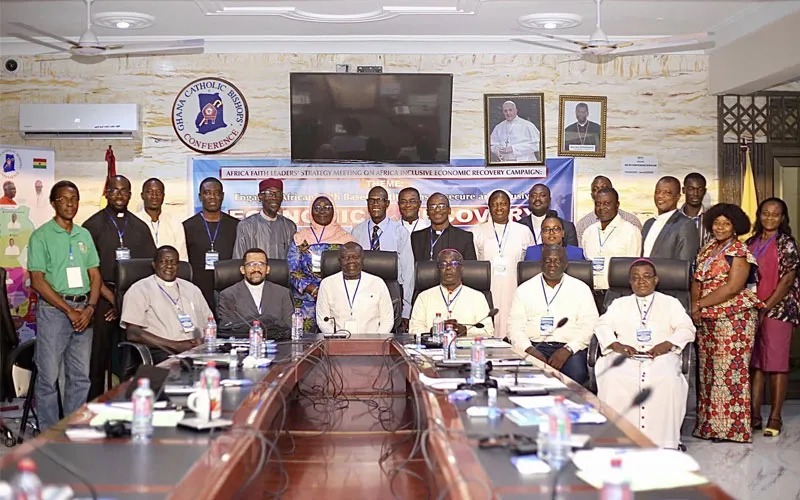In their statement, Caritas Africa officials appeal to the G7 to grant borrowers “a stay on debt payments” while they reach agreement with all creditors.
Additionally, debt relief assessments should be reformed to enshrine the principle that human development and climate investments come before debt payments, they say.
“G7 countries, as key debt governing jurisdictions, should pass domestic legislations that prevent private creditor litigation from undermining international debt relief efforts,” Caritas Africa officials say.
They appeal to the global finance leaders to support African countries experiencing an economic crisis owing to the COVID-19 pandemic, which they say has reversed the gains made in the fight against poverty on the continent.
“We, Faith Leaders from Africa, write to you the Group of 7 and African Finance Leaders as our Continent tries to cope with an unprecedented confluence of crises,” Caritas Africa officials say, and add, “A fallout from the pandemic led to economic contraction of more than 3 percent and reversed years of development progress.”
(Story continues below)
“After two decades of poverty reduction, more than 40 million Africans have fallen into extreme poverty since 2020,” they further say.
According to the officials of the entity that is one of the seven regions of Caritas Internationalis, global economic trends promise further upheaval. Caritas Africa officials say, “Less than three years after the biggest global recession in a century, the threat of recession looms again.”
They note that the shock of the Russia-Ukraine war, worsening drought in the Horn of Africa, and the concerted interest rate hikes in the major economies threaten to derail the African continent’s “fragile” recovery.
“Budget shortfalls and unpayable debts have reduced the room our countries have to take the needed actions to protect the most vulnerable and restore prosperity,” Caritas Africa officials lament.
In addition to their call on global economic leaders to address the debt crises, the officials of Caritas Africa propose the extension of Special Drawing Rights (SDRs) to cover other areas of difficulty, including tackling the hunger crisis in various parts of Africa.
“The creation of $650 billion in SDRs for coronavirus response and recovery has enhanced stability and supported funding for vaccines, health and social protection, and economic stimulus programs in many African countries,” they say, adding, “We believe SDRs have a much more significant role to play in supporting health, education, food and social investments, climate adaptation and the achievement of the Sustainable Development Goals.”
“We note with regret that, in spite of pledges made by rich countries to re-channel USD 100 billion of their SDRs, this promise remain unfulfilled to date,” Caritas Africa officials say.
They add, “We join other voices in calling on rich countries to re-channel a significant portion of their stock of more than $400 billion in Special Drawing Rights to African countries.”
They also underline the need to prevent future debt crises, saying, “While bringing debts down is critical and urgent, policies need to lay out the foundations for a lasting exit from debt crises.”
According to the Caritas officials, preventing future debt crises requires the adoption of responsible lending and borrowing rules and standards, including debt contract disclosure and authorization frameworks.
They say both creditor and borrower countries have a responsibility in supporting compliance with such standards through their own laws and policies.
“Borrowers should not continue to shoulder alone the weight of external shocks, which are increasingly frequent and put their poorest at risk. Debt contracts should include clauses that fairly allocate the risks of natural disasters and other shocks between creditors and debtors,” Caritas Africa officials say in their statement shared with ACI Africa on October 6.
Agnes Aineah is a Kenyan journalist with a background in digital and newspaper reporting. She holds a Master of Arts in Digital Journalism from the Aga Khan University, Graduate School of Media and Communications and a Bachelor's Degree in Linguistics, Media and Communications from Kenya's Moi University. Agnes currently serves as a journalist for ACI Africa.








